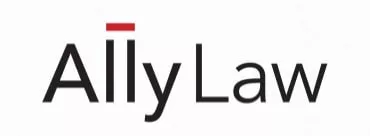The Case
MTE Holdings' business included drilling for oil and gas, an activity that generates significant amounts of toxic wastewater. Such byproducts must be disposed of in compliance with applicable environmental regulations.
Before bankruptcy, MTE Holdings had initiated a pipeline project to carry wastewater from its various field wells to a central disposal facility. The capacity of this pipeline exceeded the debtor's production of wastewater and the debtor envisioned that it could generate additional revenue by charging other oil and gas exploration and production companies for wastewater disposal. The debtor engaged Gray Surface to provide consulting and advisory services on elements of the pipeline project.
Following the filing of bankruptcy, the debtor's prepetition secured lenders announced that they did not support the wastewater disposal expansion project and would not permit their cash collateral to be used on it. The debtor was disposed to continue the project, however, and assured Gray Surface that its bills would be paid through a non-debtor affiliated company controlled by the debtor's principal. When the affiliate failed to pay as promised, Gray Surface filed a motion seeking the allowance and immediate payment of an administrative expense for the unpaid invoices.
The Context
Administrative expense claims, which enjoy priority for payment, are allowed for "the actual, necessary costs and expenses of preserving the estate" (11 U.S.C. § 503(b)(1)(A)). In the Third Circuit, a successful administrative claimant must show that "(1) there was a post-petition transaction between the claimant and the estate and (2) those expenses yielded a benefit to the estate" (In re Energy Future Holdings Corp., 990 F.3d 728, 741 (3d Cir. 2021)).
Allowed administrative expense claims must be paid in full before payment is made to lower classifications such as general unsecured claims. A Chapter 11 debtor cannot emerge from bankruptcy without paying the holders of allowed administrative claims in full on the effective date of the plan or obtaining their consent to different treatment.
In the MTE Holdings case, there was no dispute about the amounts of the invoices or that Gray Surface provided the services related to its administrative claim. Rather, the primary dispute centered around whether the "benefit to the estate" for the services provided on the wastewater disposal project was too speculative to warrant administrative expense status.
In opposing Gray Surface's administrative claim motion, the debtor argued that to "carry its heavy burden" to qualify for administrative expense treatment, Gray Surface needed to prove that the bankruptcy estate obtained demonstrable "increases in profit, revenue or competitive position" as a result of the services provided.
The Decision
The Bankruptcy Court rejected this argument, concluding that applicable case law does not impose a requirement upon a non-insider third party that provides goods or services to a debtor in possession on ordinary commercial terms to prove that receipt of those goods or services led directly to increased profits or valuation. The court concluded that the vendor's belief that "the project would generate incremental revenue or enhance the value of their business" was sufficient to establish a claim
The Impact
This opinion provides a strong argument to vendors dealing, post-petition, with debtors on standard commercial terms — notably, that the "benefit to the estate" requirement establishing an administrative priority claim is satisfied merely upon a demonstrating that the debtor reasonably believed that the goods or services provided would enhance revenue or increase business value.
Click here to read the extended article by Alexander Barnes of Ally Law member firm Obermayer.
The content of this article is intended to provide a general guide to the subject matter. Specialist advice should be sought about your specific circumstances.

